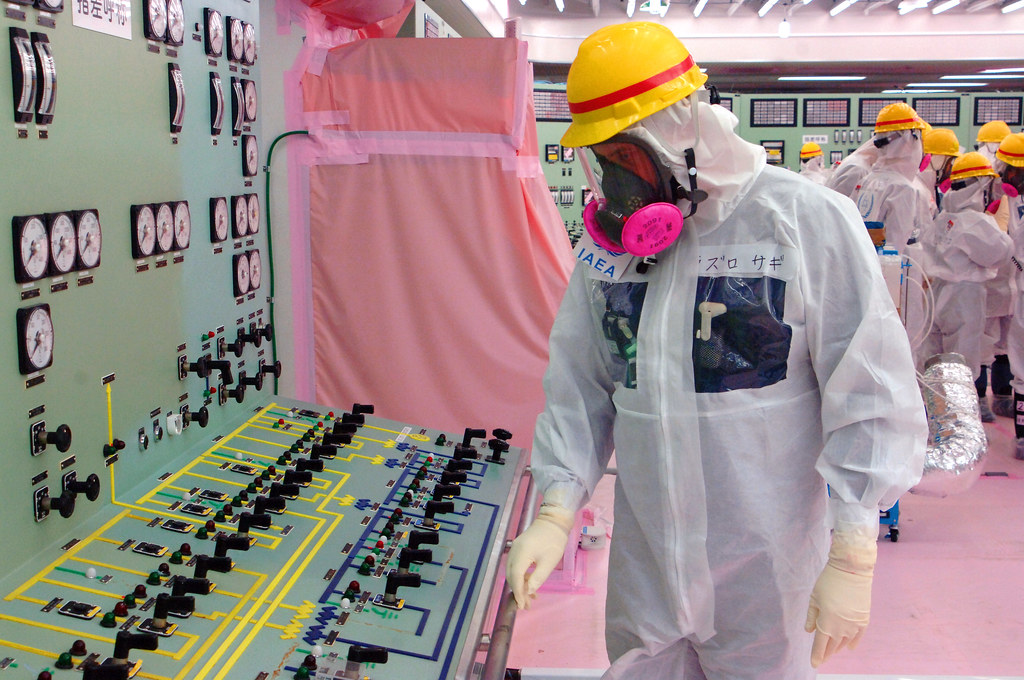Georgia joins IAEA International Radiation Monitoring System as 50th member
IRMIS provides a mechanism to report and visualise large quantities of environmental radiation monitoring data during a nuclear or radiological emergency.

Georgia has recently joined the IAEA International Radiation Monitoring System (IRMIS) as its 50th member, immediately preceded by Albania, further expanding the system's global efforts.
“Both countries now voluntarily submit radiation monitoring data to the IAEA’s radiation monitoring system, a web based tool that has been in operation for over 18 years,” said Carlos Torres Vidal, Director of the IAEA’s Incident and Emergency Centre (IEC). He added: The system plays an important role in nuclear radiation monitoring, providing countries with real-time data visualization for decision-making in emergencies and helping implement appropriate measures to protect the public and the environment from the harmful effects of ionizing radiation.”
IRMIS provides a mechanism to report and visualise large quantities of environmental radiation monitoring data during a nuclear or radiological emergency.
“The addition of Georgia and Albania as the newest members of IRMIS shows the growing recognition and acceptance of IRMIS among IAEA Member States over the past few years,” said Torres Vidal. ”Their participation significantly strengthens our network, showcasing the robustness of international collaboration in ensuring public and environmental protection,” he added.
Georgia and Albania's entry strengthens regional data sharing in IRMIS
Georgia and Albania’s accession strengthens IRMIS’ coverage in Eastern Europe and enhances data sharing regionally and globally.
Dimitri Kolotauri from Georgia’s Agency of Nuclear and Radiation Safety (ANRS) expressed appreciation for “the IAEA’s immense efforts to maintain tools that assist all countries in taking appropriate protective actions during emergencies.
“Georgia’s recent membership in the IRMIS underscores our unwavering commitment to the international legal regime and global collaboration," he added.Insight into IRMIS: The radiation monitoring network IRMIS is established to assist in the implementation of the Convention on Early Notification of a Nuclear Accident. It is not an early warning system but instead focuses on providing real-time monitoring of environmental radioactivity and assessment of radiological hazards caused by radioactive materials, emergencies or accidents. This aids countries in decision-making for public protection.
IRMIS's data comprises two types: routine data, which includes radiation dose rates from fixed monitoring stations voluntarily submitted by countries, and emergency data shared during nuclear or radiological emergencies when countries deem it necessary. The IRMIS also supports and strengthens the Unified System for Information Exchange in Incidents and Emergencies (USIE).
The IRMIS displays real-time information on radiation levels on a map showing what are known as IAEA Operational Intervention Levels (OILs), which are guidelines used by emergency response teams during a nuclear or radiological emergency. They help these teams quickly decide what actions to take to protect people and the environment, based on the levels of radiation they detect through monitoring. This information enables countries’ emergency responders to assess and minimize any potential risks to human health and the environment.
Since its creation in 2016, the radiation monitoring information system network has expanded to 50 countries including: Albania, Australia, Austria, Belarus, Belgium, Bosnia and Herzegovina, Bulgaria, Canada, Croatia, Cyprus, Czech Republic, Denmark, Estonia, Finland, France, Georgia, Germany, Greece, Hungary, Iceland, Indonesia, Iraq, Ireland, Italy, Japan, Jordan, Latvia, Lithuania, Luxembourg, Malaysia, Malta, Netherlands, North Macedonia, Norway, Poland, Portugal, Romania, Russian Federation, Saudi Arabia, Serbia, Slovakia, Slovenia, Spain, Sweden, Switzerland, Thailand, Türkiye, Ukraine, United Kingdom and United States of America.
- READ MORE ON:
- Georgia
- IAEA
- International Radiation Monitoring System










